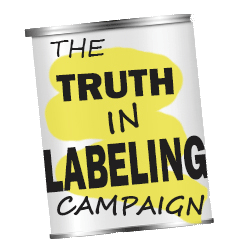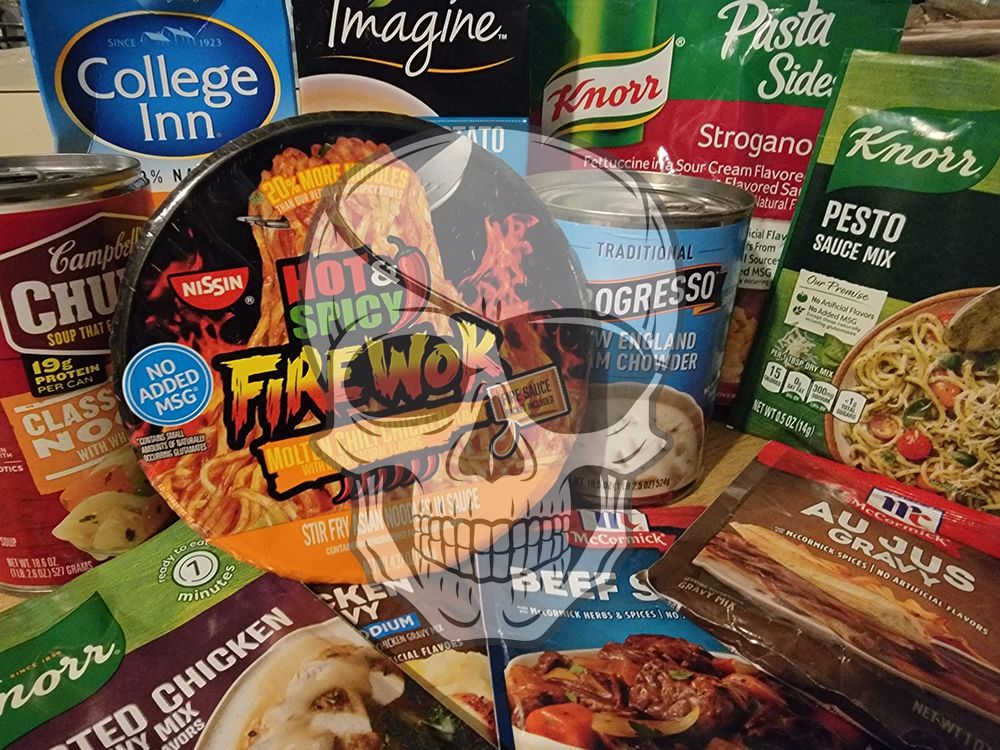A group of California attorneys have filed a trio of lawsuits to try to stop food manufacturers from deceiving consumers with fraudulent “No MSG” claims on food products that contain free glutamates.
The first complaint was filed against Campbell’s in January in an action the lawyers hope will eventually represent millions of consumers across the U.S. who purchased Campbell’s brand Swanson broth products with “false and misleading ‘NO MSG ADDED’ claims.”
That was followed by two more class action complaints against Nissin Foods U.S.A. for its “No added MSG” noodle products, and Del Monte Foods for its “No MSG,” claim that prominently appears on College Inn broths.
The FDA rule regarding such “misbranding” is relatively simple – if you market a food product containing free glutamate in any form, you can’t say it contains “No MSG” or “No added MSG.”
Names of ingredients in addition to MSG that contain MfG (manufactured free glutamate) include hydrolyzed proteins, yeast extract, whey protein and dozens of others. And all those MfG-containing ingredients can trigger what consumers commonly call “MSG reactions.”
Years ago, a group of states sued companies that misbranded products this way — and won. At about that time, the FDA sent out a warning letter to a company not targeted by the state actions, but even that was surprising since the FDA has been denying the toxic effects of MSG since 1968 when then FDA commissioner Herbert L. Ley Jr. was speaking out on the safety of MSG.
Considering how many manufacturers do this (see our list at the end of the products we’ve found), it appears that Big Food has no fear the FDA will begin to enforce the law.
Label laundering
Last year we investigated several of these brands, including College Inn, calling the company to ask about its “No MSG” claim when its products clearly contained MfG from numerous sources.
The College Inn customer service representative told us that the company had a “campaign” to remove MSG from its products over 15 years ago when they were reformulated. “MSG can’t be hidden or called something else,” we were told.
That’s true. The ingredient called monosodium glutamate, a.k.a. MSG can’t be hidden. But the law says that since consumers frequently use the term MSG to mean all free glutamate, saying your product has “No MSG” or “No added MSG” when it contains free glutamate is considered “false and misleading,” and in violation of the Federal Food Drug & Cosmetic Act.
So, College Inn is breaking the law – one that the FDA refuses to enforce.
Attorney Jonas Jacobson, from the firm of Dovel & Luner in Santa Monica, California, who represents the plaintiffs in the three lawsuits hopes that they will soon be certified as class action complaints. Jacobson commented that “this labeling practice is misleading to consumers and is prohibited by consumer protection laws. Yet a number of companies are still putting ‘No MSG’ claims on products that have added free glutamates. We filed these cases to stop this practice…”
This practice, however, is so widespread that when you see “No MSG,” or “No added MSG” on a product it’s almost a given that it will contain sources of MfG. And that’s no simple labeling error.
Products we’ve noticed that state “No MSG,” “No MSG added,” or “No Added MSG” that contain free glutamates
Note: This list is by no means complete.
Campbell’s Chunky Classic Chicken Noodle
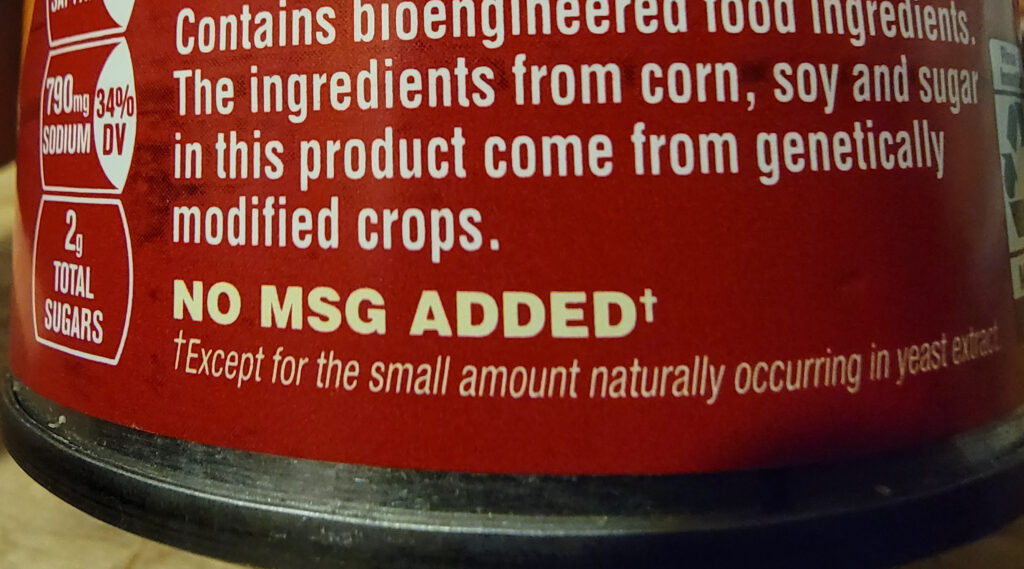
Despite pledging “No MSG added” Campbell’s filled up its Chunky Classic Noodle with wheat protein isolate, yeast extract, soy protein concentrate, vegetable broth (which can contain numerous unnamed sources of MfG), and two tell-tale ingredients: disodium guanylate and disodium inosinate, which work synergistically with MSG to enhance flavor. If those two expensive ingredients are added for flavoring, so is inexpensive MSG.
Progresso New England Clam Chowder
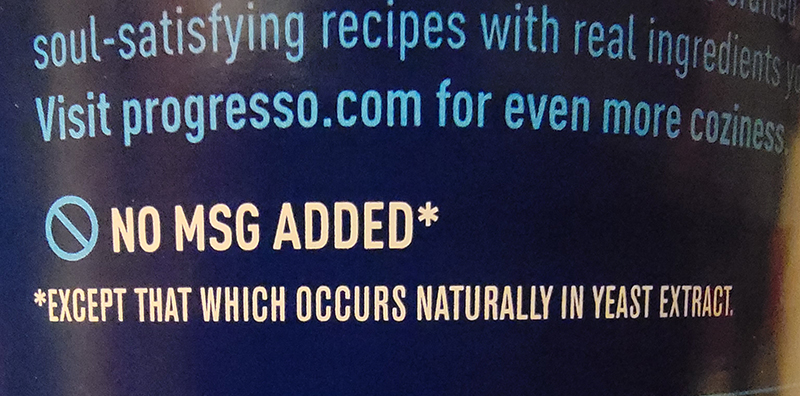
Progresso adds its “NO MSG ADDED” pledge right above the serving instructions to make sure it’s noticed. But if you turn the can a bit to the right, you’ll see that this soup contains at least two sources of MfG – soy protein concentrate, and yeast extract, along with natural flavors. Over a decade ago Campbell’s and Progresso duked it out over which soup brand used less MSG, spending a fortune on advertising bashing each other.
Minors Soup Bases (Owned by Nestle)
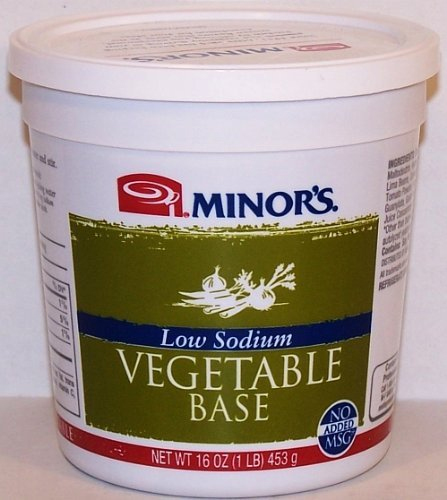
These “No added MSG” products are especially devious as they are used by restaurants as a base mix for “homemade” soups, sauces and gravies. Since they are falsely advertised as “No MSG” products, asking your server or the chef about MSG or free glutamates in a restaurant that uses Minors soup bases is useless.
All of the Minors products we looked at contained some form of MfG. For example, the low sodium vegetable base contains autolyzed yeast extract, hydrolyzed corn protein, natural flavors and disodium guanylate and inosinate. The mushroom base contains hydrolyzed corn and soy proteins and natural flavors along with disodium guanylate and inosinate.
Newman’s Own ranch dressing
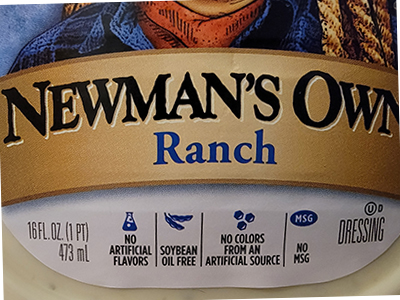
So what’s up with Newman’s and its “No MSG” claims on ranch dressing? Years ago The Truth in Labeling Campaign contacted the company about its “No MSG” ranch dressing. We were told in an email that only a small amount of “free glutamate” was found after a laboratory analysis. Then, they removed the claim. But now we see it’s back.
The ingredient of concern is “natural flavor,” which is basically a free FDA pass to add MfG to a product. We just sent Newman’s Own another email asking if the product has been tested (again) for free glutamates, and if so, what the results were. If we hear back we’ll post it here.
Imagine potato leek soup
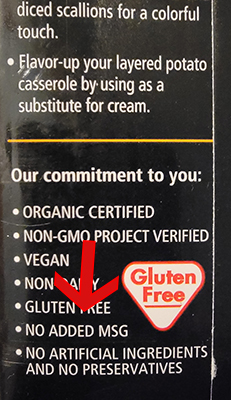
Don’t automatically assume that organic products are “pure” or “safe.” Imagine Foods organic potato leek soup makes a “commitment” of stating “no added MSG” on its label, but also is committed to adding those “natural flavors.” While monosodium glutamate is technically not allowed in organic food, there’s nothing prohibiting the addition of any number of additives containing the same free glutamic acid found in MSG — what causes identical “MSG reactions” in people.
Nissin noodle products
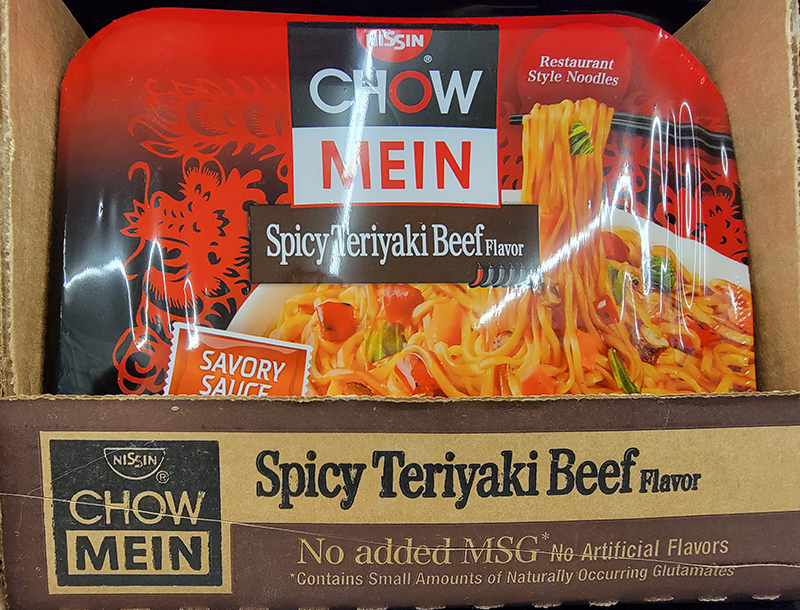
Nissin, which is one of the companies named in the current lawsuits, is such a big fan of saying “NO ADDED MSG” that it plasters that statement not only in a big, bold circle on its packaging, but also on the shipping cartons. The product we purchased, Firewok, contains seven sources of free glutamates plus disodium guanylate and inosinate.
Knorr products
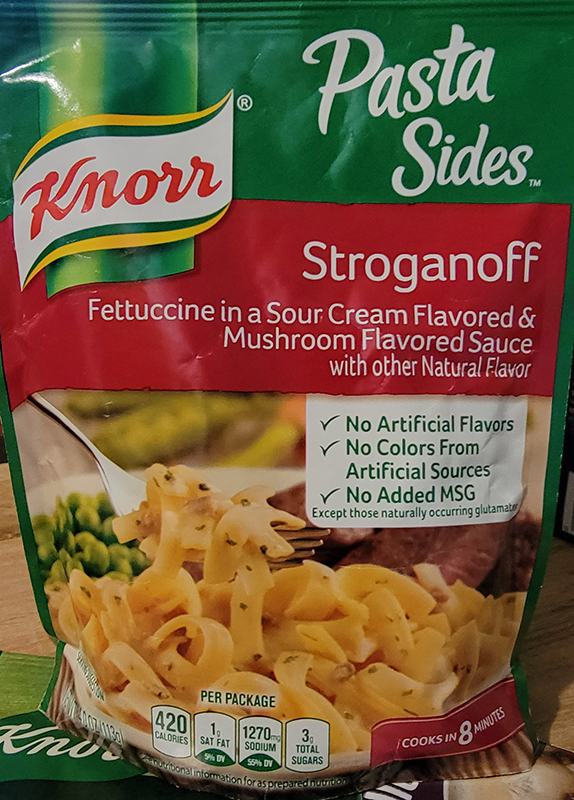
Knorr, which sells a variety of gravy and sauce packets along with “pasta sides” is perhaps the number one Big Food fan of fraudulently stating “No added MSG,” yet filling their products full of hydrolyzed proteins, yeast extract and natural flavors. Some of the Knorr packaging states that the no MSG claim is “Our Promise.” Last year we asked a Knorr customer service representative about this deceptive labeling and was told that MSG is the subject of “additional studies… by health officials” and that MSG isn’t used in any Knorr products.
McCormick flavor packets
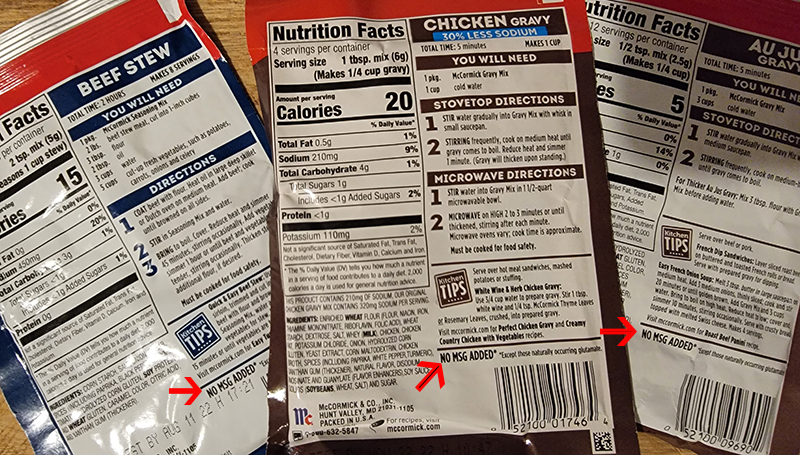
McCormick is another company that loves to state “No MSG added” on products that contain numerous sources of MfG. We selected chicken gravy, beef stew and au jus gravy, which contained hydrolyzed corn gluten, soy protein and yeast extract. The chicken gravy also had natural flavor and disodium guanylate and inosinate, said on the product label to be included as “flavor enhancers.”
It’s obvious that consuming processed foods is a crap shoot when it comes to avoiding MfG. And relying on advertising claims of “No MSG” or “No added MSG” to make purchasing decisions will decidedly turn the odds against you.
We’ll try to keep you updated on the status of the ongoing litigation. If any are certified as class actions, depending on the state you live in, you may want to join in as a plaintiff. And if you feel you’ve been deceived by purchasing a product based on “No added MSG” claims, you may be able to find an attorney to start your own lawsuit. Since the FDA won’t enforce this rule, it looks like it’s up to consumers to take action.

